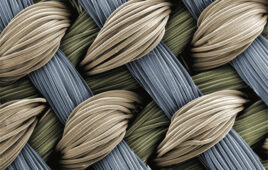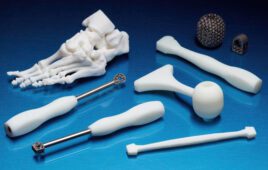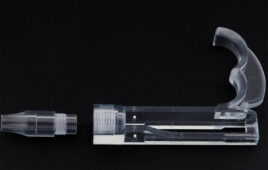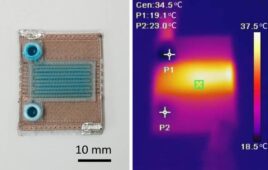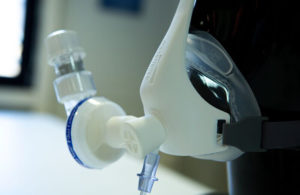
Image from Materialise
Materialise announced today that it developed a 3D-printed device to convert standard hospital equipment into a mask to help patients breathe by creating positive pressure in the lungs.
The Leuven, Belgium-based company’s Materialise NIP Connector is designed to give clinicians the ability to reduce the time that patients need access to ventilators and relieve the strain on ventilator supplies during the COVID-19 pandemic.
This 3D-printed connector converts the standard equipment into a non-invasive positive end-expiratory pressure, or PEEP, mask (NIP) that can be connected to the oxygen supply, giving patients an extended period of time before mechanical ventilators are required for treatment and helping to transition them off ventilators earlier, according to Materialise.
Materialise is fast-tracking its regulatory registrations for the NIP Connector in Europe and the U.S. and anticipates that it will be broadly available for hospitals by mid-April, the company said in a news release. Materialise is also supporting a clinical trial to test the impact of the NIP Connector and expects results within the next two weeks.
“3D printing is playing a crucial role in fighting the global coronavirus pandemic by making it possible to develop innovative solutions and have them available worldwide very quickly,” Materialise Medical VP Brigitte De Vet said in the release. “At the same time, it is crucial that the medical products we put on the market are safe and effective. Materialise has decades of experience in certified medical 3D printing which allows us to bring 3D-printed devices to the market quickly and safely.”
Materialise is also planning to increase its production capability at its facilities in Belgium and in Plymouth, Mich., along with on-site 3D printing facilities of qualified partners. The company said it is looking for partners to get the product to as many patients as possible.
Materialise added that it has developed other COVID-19-related innovations, including a 3D-printed door handle attachment for using covered forearms to limit contact with bare hands and contaminated door handles, a 3D-printed shopping cart handle for arm steering instead of hands, and a 3D-printed connector to adapt scuba masks for air filtration and oxygen supply.

